Home

Diminished Ovarian Reserve: How This Condition Can Affect Your Chances of Pregnancy
In this Article
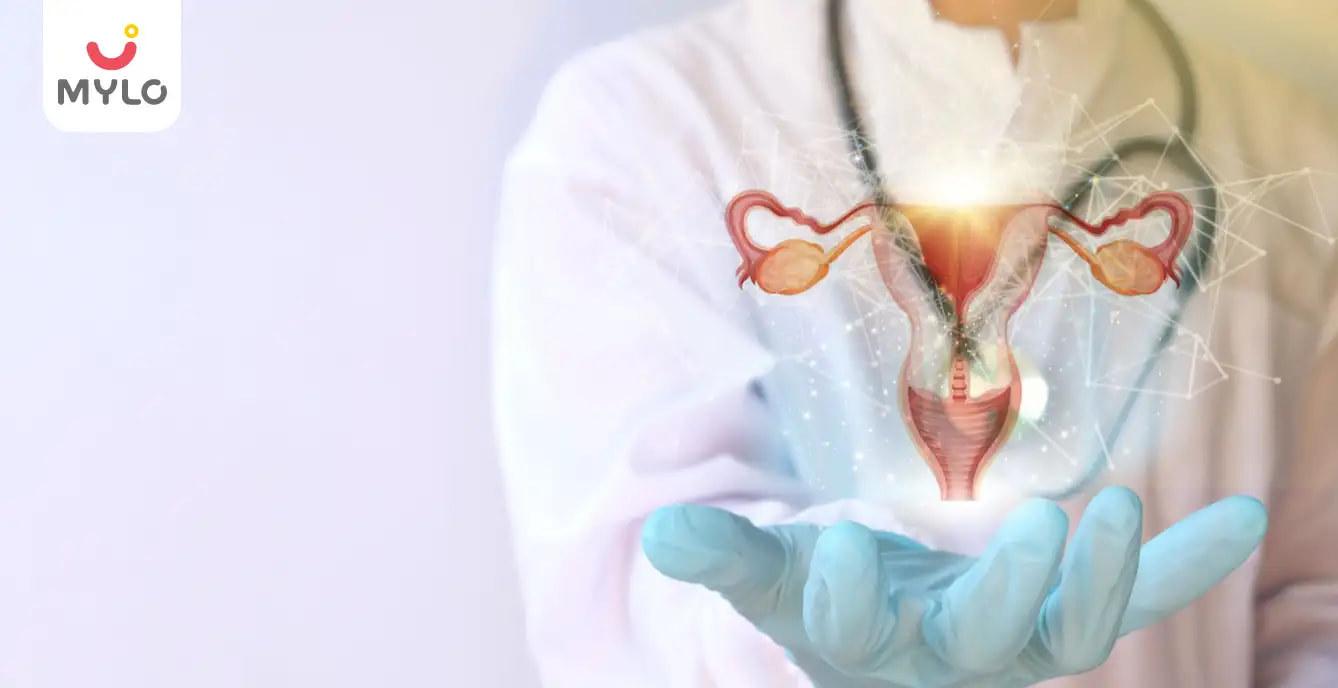
Getting Pregnant
Diminished Ovarian Reserve: How This Condition Can Affect Your Chances of Pregnancy
Updated on 28 September 2023



Medically Reviewed by
Dr. Shruti Tanwar
C-section & gynae problems - MBBS| MS (OBS & Gynae)
View Profile

Nandini and Avinash started their conception journey with high hopes but having witnessed no results even after a year of trying dashed their hopes. The dream of starting their own family encouraged them to try fertility-boosting remedies from herbs and massages to Yoga and acupuncture. At last, they found themselves knocking on the doors of a fertility specialist who helped them diagnose that Nandini had a diminished ovarian reserve.
And so began their quest for understanding what an ovarian reserve meant, the symptoms of low ovarian reserve, how a poor ovarian reserve impacted their chances of conception and how to overcome this hurdle in their conception journey.
What is Diminished Ovarian Reserve?
The term ovarian reserve can be defined as the number and quality of a woman’s eggs, also referred to as oocytes. When the number and quality of your eggs are less than expected for your age, you are said to have a diminished ovarian reserve. This condition is also known as low ovarian reserve or low egg count.
What is the Average Number of Eggs in Women?
A woman is born with all the eggs she will ever produce. As she ages, the number of eggs begins to decline. As a result, the average number of eggs varies according to the age group you belong to.
- 20 Weeks of Gestation: 6-7 million eggs
- Birth: 1-2 million eggs
- Puberty: 3,00,000-4,00,000 eggs
- Age 40: 25,000 eggs
- Menopause: Fewer than 1,000 eggs
The exact number of eggs a woman has can only be calculated through ovarian reserve testing and only a doctor will be able to find that out.
How Does Poor Ovarian Reserve Affect Chances of Pregnancy?
A woman’s eggs along with a man’s sperm are the building blocks for pregnancy. An ovarian reserve with a low egg count can make it hard for you to get pregnant. Although you only need one egg to get pregnant, your chances of conceiving become smaller with a low ovarian reserve.
However, it’s important to remember that egg count is not the only factor affecting your chances of pregnancy, egg quality, functioning of fallopian tubes and uterus along with sperm quality and count play an important role as well.
You may also like : Improve Egg Quality in 30 Days: The Ultimate Guide to Boosting Your Fertility Naturally
What are the Symptoms of Low Ovarian Reserve?
Unlike Nandini who received a diagnosis of diminished ovarian reserve after more than a year of trying, it’s possible for you to receive an early diagnosis by looking out for symptoms of poor ovarian reserve. Although diminished ovarian reserve may not exhibit many noticeable signs, here are some symptoms you may experience with it:
-
Late or absent menstrual periods
-
Shorter than average menstrual cycles (average being 28 days)
-
Difficulty getting pregnant
If you’re experiencing the symptoms of low ovarian reserve, there are chances that you may also experience the symptoms of perimenopause such as irregular menstrual period, hot flashes and vaginal dryness.
What Causes Low Ovarian Reserve?
Ageing naturally causes the ovarian reserve to decline but at other times there may be certain factors responsible for poor ovarian reserve such as:
-
Tubal disease
-
Prior ovarian surgery
-
Chemotherapy
-
Radiation therapy
-
Smoking
-
Pelvic infection
-
Autoimmune diseases
-
Mumps
-
Genetic abnormalities that affect the X chromosome
-
Losing one or both of your ovaries
It’s important to note that sometimes there may not even be a cause for low ovarian reserve.
Ovarian Reserve Testing: How to Diagnose Poor Ovarian Reserve?
Doctors use ovarian reserve testing to screen for diminished ovarian reserve. This test helps estimate how many eggs you have left but it can’t tell for certain how many years of fertility you have or if you’ll be able to conceive. If you screen positive for low ovarian reserve, it doesn’t mean you can’t conceive naturally, you may just have a tough time getting pregnant without treatment.
Ovarian reserve testing involves the following:
1. Blood Tests
Blood tests help measure the levels of anti-mullerian hormone (AMH) or follicle-stimulating hormone (FSH) and estradiol. These tests help tell how well your body will respond to ovarian stimulation or fertility medication.
2. Vaginal Ultrasound
A vaginal ultrasound helps to estimate the ovarian volume and the number of follicles in your ovaries. This is called antral follicle count (AFC).
3. Clomiphene Citrate Challenge
Although uncommon, clomiphene citrate challenge involves taking oral fertility drugs and monitoring your body’s response to them.
Women with low ovarian reserve have higher FSH levels and lower AMH and AFC levels compared to women their age. These tests, however, don’t assess your ability to get pregnant naturally, they only determine the likelihood that you will have a favourable response to ovarian stimulation medication.
How to Treat Diminished Ovarian Reserve?
There is no way to reverse low ovarian reserve or produce more eggs. If a doctor suspects or diagnoses that you have a diminished ovarian reserve, they will help you assess suitable treatment options for you. These options include:
1. DHEA supplements
Dehydroepiandrosterone (DHEA) is a mild androgen that is produced naturally in the body but may decline as you age. DHEA supplements are commonly used to increase fertility in women with diminished ovarian reserve. These supplements can help improve the chances of pregnancy without additional medical treatment and even IVF success rates.
2. Fertility capsules
Some women may also benefit from fertility capsules containing an effective blend of fertility-boosting supplements like CoQ10, L-methyl folate, zinc, Vitamin D2, Vitamin B12 and shatavari, among others. These ingredients are known to improve egg health and development, maintain hormonal balance, prevent fertility complications and improve ovulation cycle.
3. Egg freezing
Freezing your eggs is a revolutionary way to preserve your fertility. If you are suspected to have a low ovarian reserve, your doctor would suggest you freeze your eggs before the egg count declines any further. Egg freezing comprises taking hormones to stimulate ovaries to make as many eggs as possible, then, the mature eggs are collected and frozen for future IVF treatment.
4. Embryo freezing
In certain cases, the doctor may suggest fertilising your eggs with your partner’s sperm or donor sperm, creating an embryo and then freezing the embryo for future use. This is known as embryo freezing.
5. Donor eggs
Another option for women with low egg quality and/or quantity is using donor eggs. In this case, you procure eggs from a donor and your partner’s sperm fertilises the donor egg. The resulting embryo can then be transferred to your uterus.
Final Thoughts
Getting diagnosed with a diminished ovarian reserve can leave you feeling hopeless or overwhelmed. But like Nandini and Avinash, there’s no need to lose hope but explore the treatment options at your disposal. It’s important for you to remember that many women go on to conceive naturally with a poor ovarian reserve or through fertility treatments like IVF with donor eggs.
References
1. Jirge PR. (2016). Poor ovarian reserve. J Hum Reprod Sci.
2. Rasool S, Shah D. (2017). Fertility with early reduction of ovarian reserve: the last straw that breaks the Camel's back. Fertil Res Pract.

Mylo Ovaluna Female Fertility Tablets - 60 Capsules
Improves Egg Health & Folate Levels |Improves Reproductive Health & Hormonal Balance
₹ 1799

4.9
(11192)


3913 Users bought





Medically Reviewed by
Dr. Shruti Tanwar
C-section & gynae problems - MBBS| MS (OBS & Gynae)
View Profile


Written by
Anupama Chadha
Anupama Chadha, born and raised in Delhi is a content writer who has written extensively for industries such as HR, Healthcare, Finance, Retail and Tech.
Read MoreGet baby's diet chart, and growth tips

Related Articles
Related Questions
Influenza and boostrix injection kisiko laga hai kya 8 month pregnancy me and q lagta hai ye plz reply me

Hai.... My last period was in feb 24. I tested in 40 th day morning 3:30 .. That is faint line .. I conculed mylo thz app also.... And I asked tha dr wait for 3 to 5 days ... Im also waiting ... Then I test today 4:15 test is sooooo faint ... And I feel in ma body no pregnancy symptoms. What can I do .

Baby kicks KB Marta hai Plz tell mi

PCOD kya hota hai

How to detect pcos

Related Topics
RECENTLY PUBLISHED ARTICLES
our most recent articles
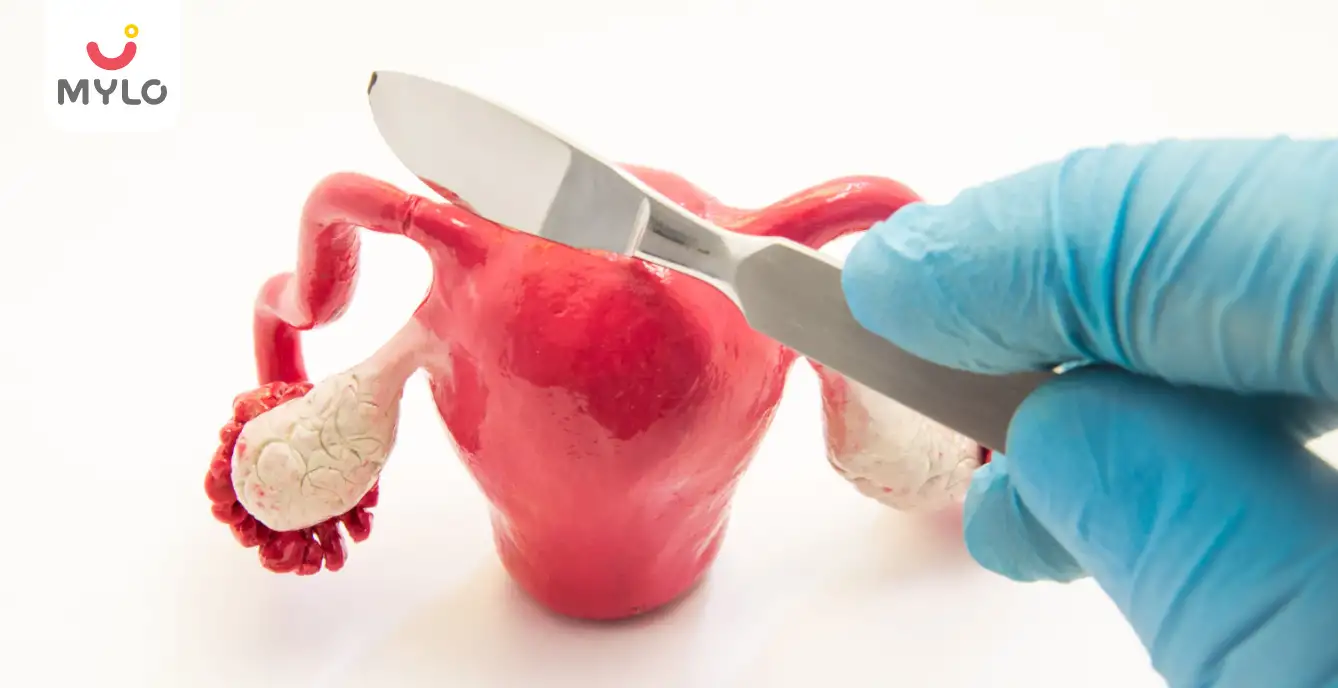
Medical Procedures
Tubal Recanalization: How This Procedure Can Help Restore Your Fertility
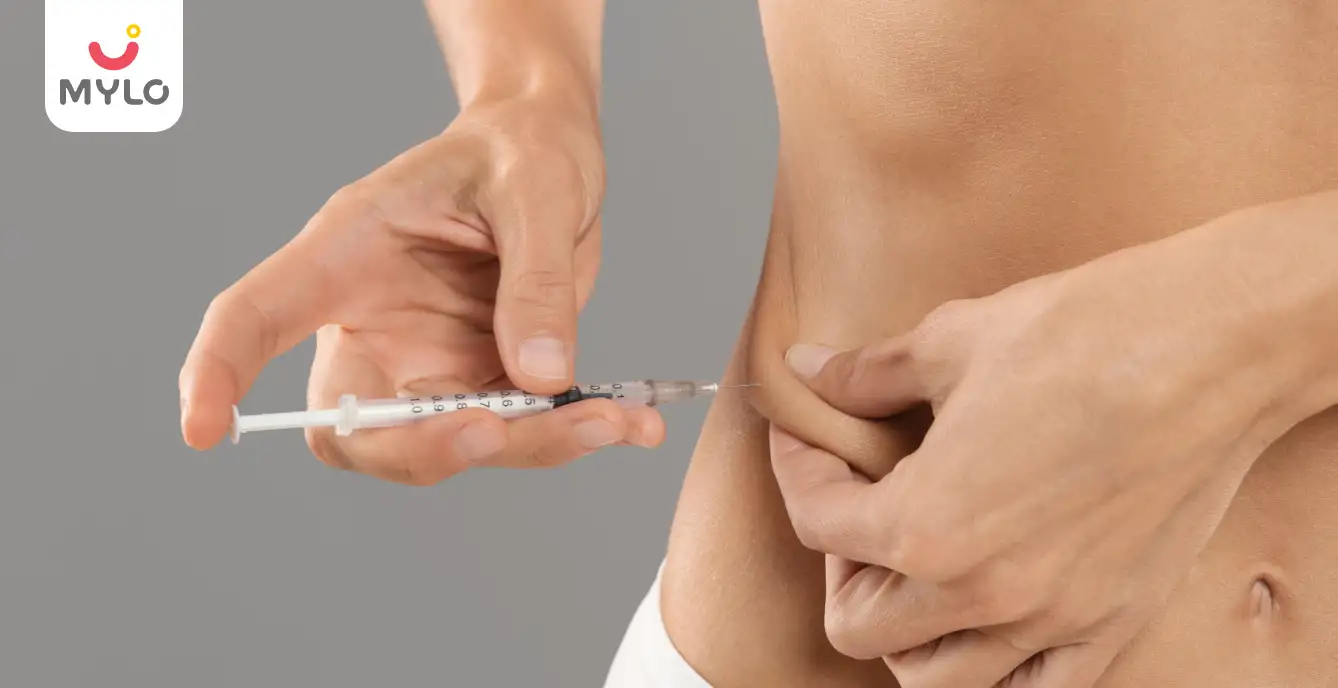
Hormones
Are FSH (Urofollitropin) Injections an Effective and Safe Fertility Treatment For You?
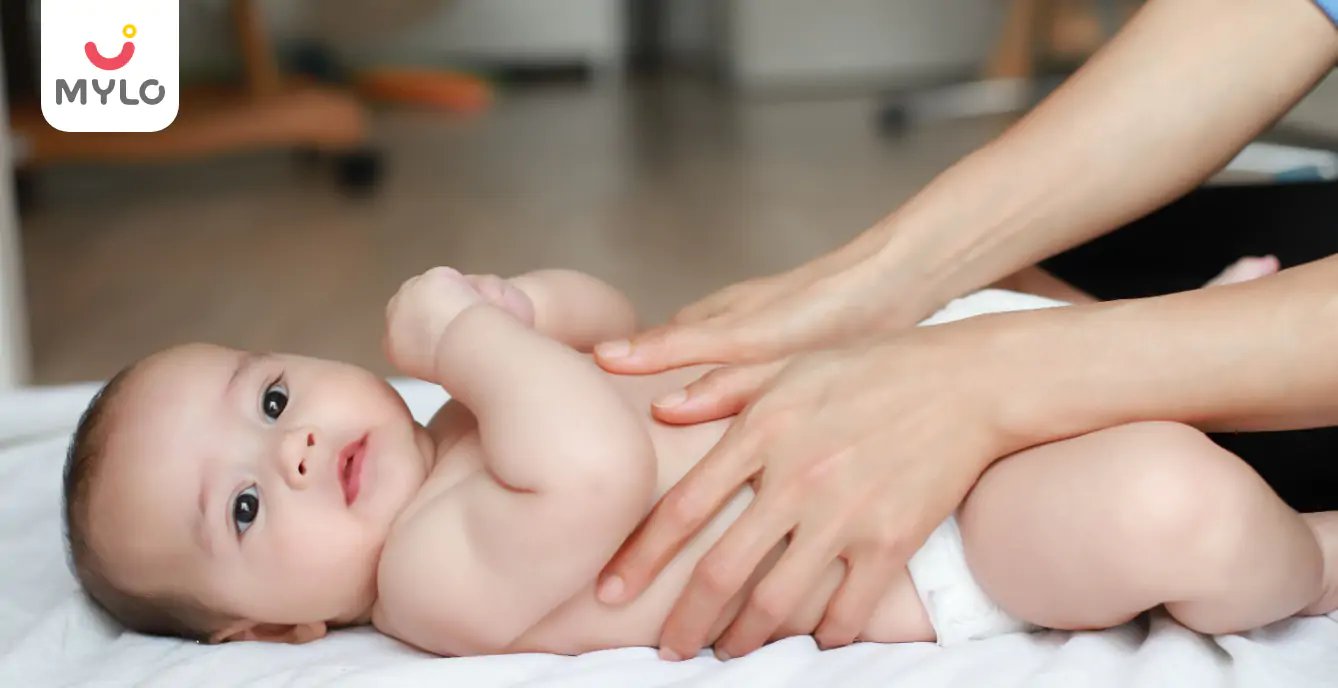
Baby Massage
The Ultimate Guide to Choosing a Baby Massage Oil for Summer
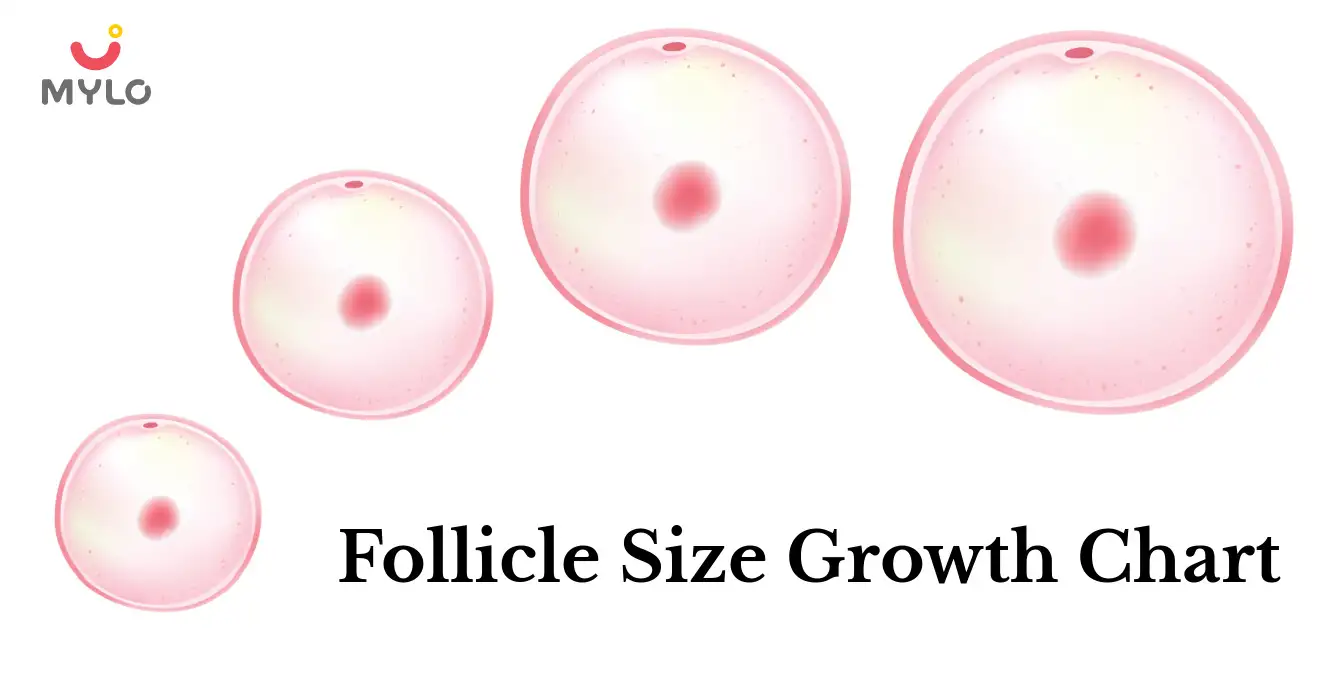
Reproductive health
The Ultimate Guide to Understanding a Follicle Size Growth Chart

PCOS & PCOD
Fruits for PCOS: Your Guide to Making Healthy Choices
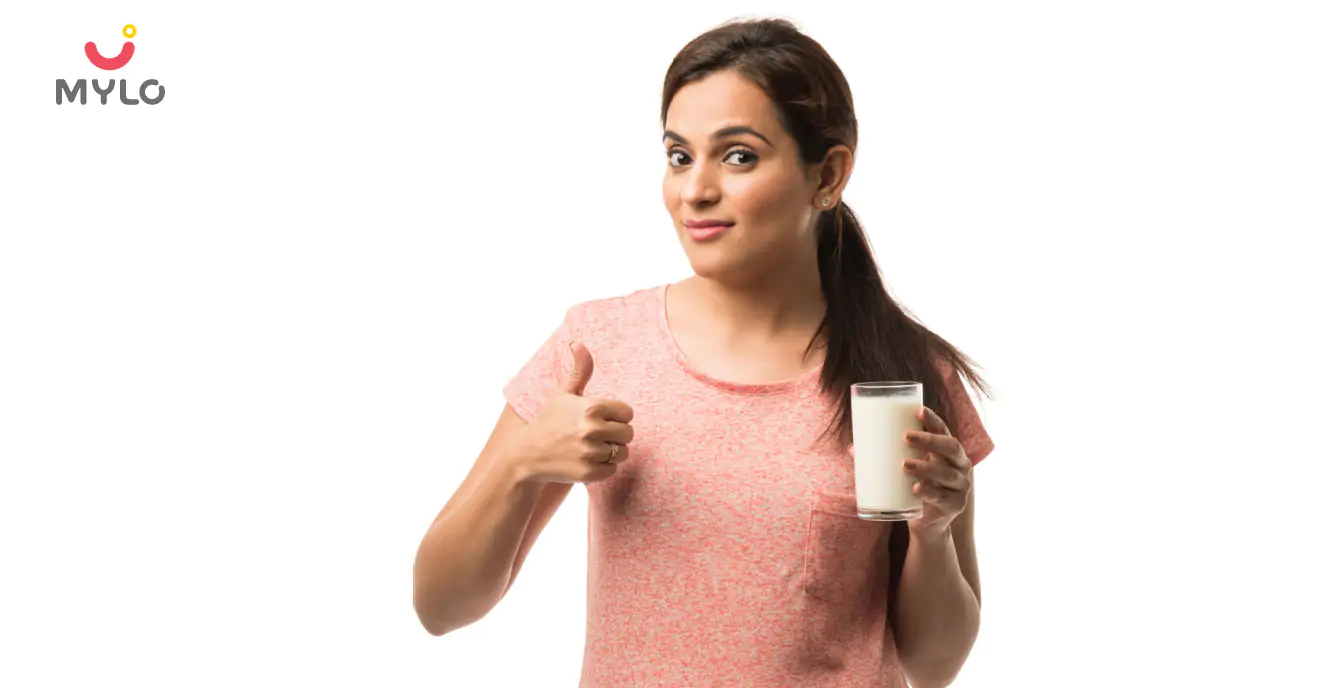
PCOS & PCOD
Is Milk Good for PCOS: Exploring the Dairy Dilemma
- The Ultimate Guide to Using Ashokarishta for PCOS
- PCOS Pain: The Ultimate Guide to Causes and Effective Management
- 10 Best Mystery Books to Read in 2023
- 10 Best Non-Fiction Books to Read in 2023
- Is Ghee Good for PCOS: The Ultimate Guide to Benefits and Ways to Consume
- Is Curd Good for PCOS: The Ultimate Guide to Debunking Myths and Discovering Benefits
- Dark Chocolate for PCOS: Unlocking the Potential of a Guilt-Free Indulgence
- Beetroot for PCOS: Discovering a Natural Approach to Managing Symptoms
- Soy for PCOS: Should You Eat it or Avoid It?
- Cinnamon for PCOS: Discovering the Natural Support You've Been Missing
- When Do Babies Start Walking?
- The Ultimate Guide to 4th Month Pregnancy Symptoms
- Your Guide to 2 Months Pregnant Symptoms: What to Expect
- The Ultimate Balanced Diet Chart: Your Guide to Optimal Nutrition


AWARDS AND RECOGNITION

Mylo wins Forbes D2C Disruptor award

Mylo wins The Economic Times Promising Brands 2022
AS SEEN IN

- Mylo Care: Effective and science-backed personal care and wellness solutions for a joyful you.
- Mylo Baby: Science-backed, gentle and effective personal care & hygiene range for your little one.
- Mylo Community: Trusted and empathetic community of 10mn+ parents and experts.
Product Categories
baby carrier | baby soap | baby wipes | stretch marks cream | baby cream | baby shampoo | baby massage oil | baby hair oil | stretch marks oil | baby body wash | baby powder | baby lotion | diaper rash cream | newborn diapers | teether | baby kajal | baby diapers | cloth diapers |




